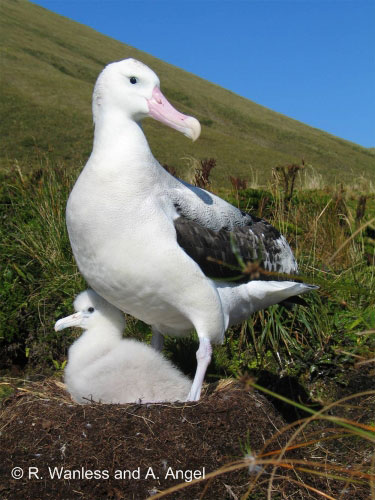Gough and Inaccessible are two island nature reserves in the mid South Atlantic that are part of the United Kingdom's Overseas Territory of St Helena, Ascension and Tristan da Cunha. Together they form a single World Heritage Site. Most recently they have been afforded the status of Wetlands of International Importance under the Ramsar Convention as sites Nos. 1868 (Gough) and 1869 (Inaccessible), being designated on 20 November 2008.
Brief descriptions of the sites have this month been listed on the Ramsar web site in its Bulletin Board section at www.ramsar.org (scroll down to entry for 5 September), following processing by the Convention's Secretariat. The sites total over 256 000 ha and extend to territorial limits of 12 nautical miles.

Gough and Inaccessible together support six ACAP-listed species, including two endemics: the Tristan Albatross Diomedea dabbenena and the Spectacled Petrel Procellaria conspicillata. In addition, the Atlantic Yellow-nosed Albatross Thalassarche chlororhynchos which occurs on both islands is endemic to the Tristan Group.
Search on Gough and Inaccessible for earlier stories on these two islands and the threats faced by their seabirds.
John Cooper, ACAP Information Officer, 13 September 2009

 Français
Français  English
English  Español
Español